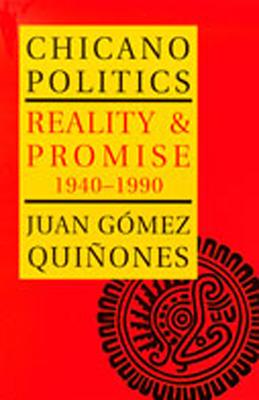This political history of Mexican Americans analyzes and interprets the last fifty years in the movimiento. Written by a leading Chicano historian who spent many years as an activist, this study evolved from Juan Gmez-Quiones's participation and reflection.
Examined are the leaders and organizations that waged struggles for political rights as well as the evolution of their goals and strategies. Beginning in the 1940s, Mexican Americans viewed the advocacy process in party politics, coupled with the selected use of the courts, as effective means to redress problems. But by the mid-1930s, the persistence of discrimination, inequality, and poverty led many to question the so-called gains make through piecemeal reform. A new style of politics, based on wide mobilization and an insistence upon democratic rights, coalesced into an ethnic populism known as the Chicano movement.
Today, the Mexican American community in the United States remains committed to securing a more socially just life, But its political expression is often confused because, in the jumble of competing voices and self-serving conservatism, the true majority of the Mexican American community--the workers--are often overlooked and unheeded.
